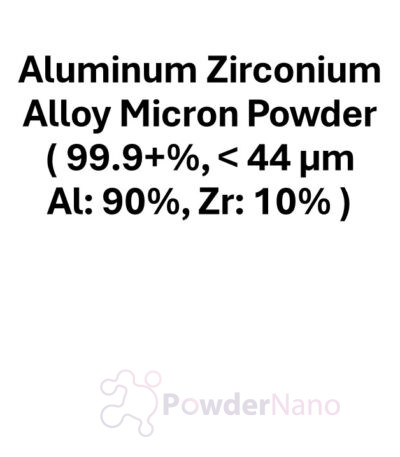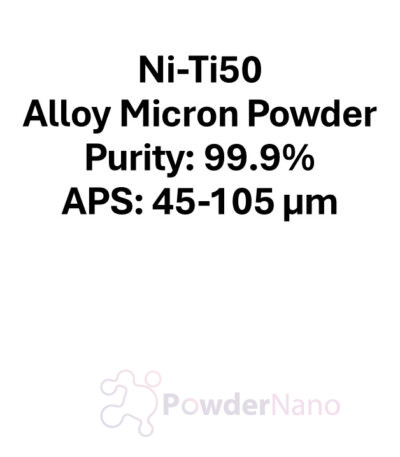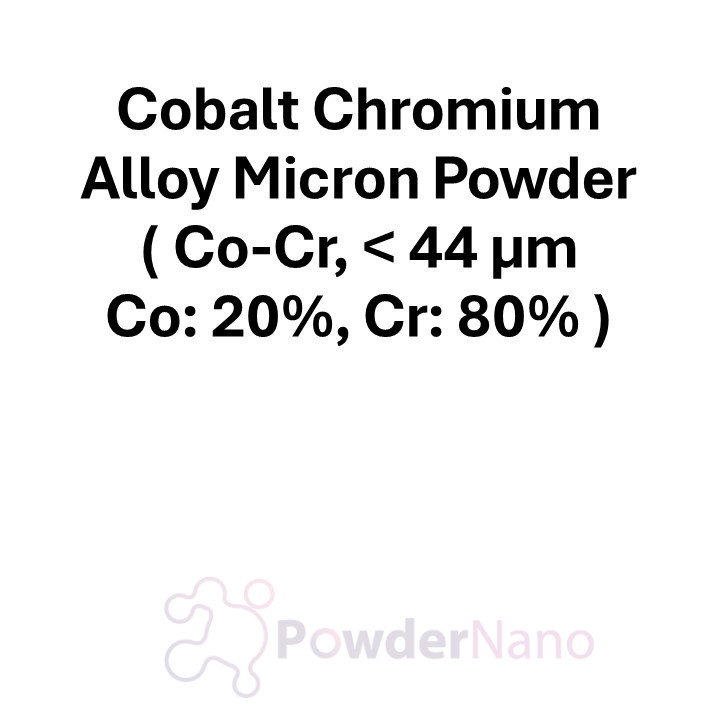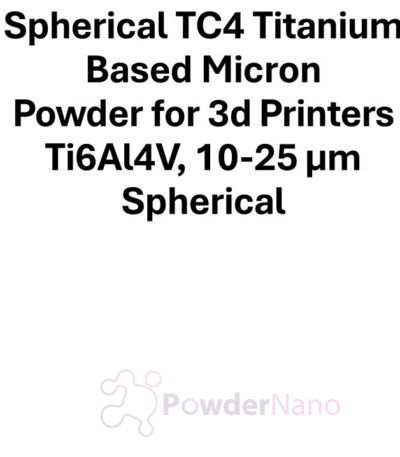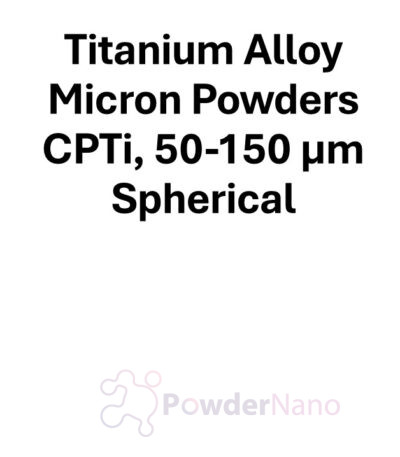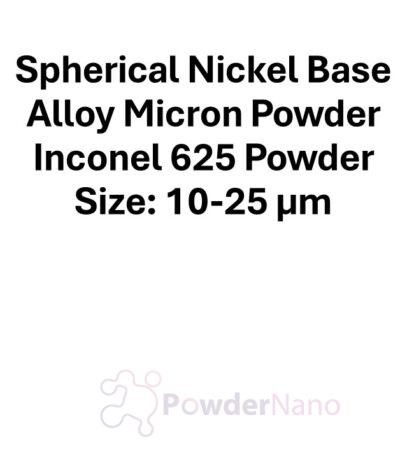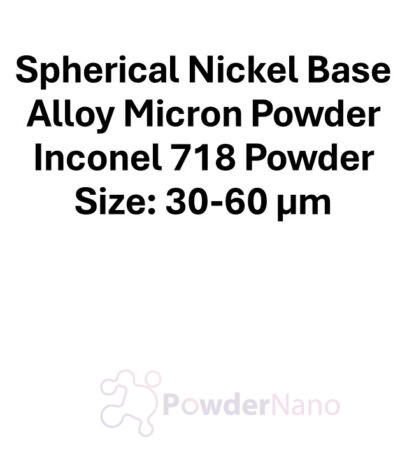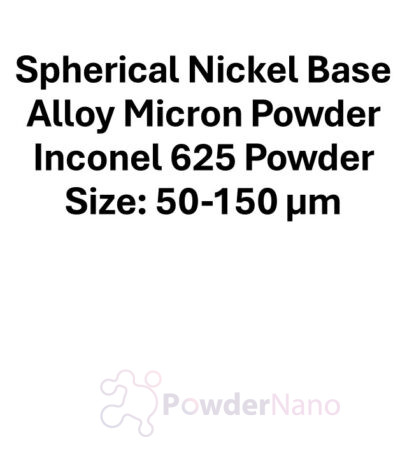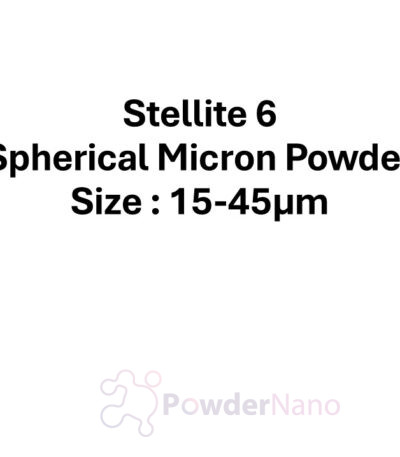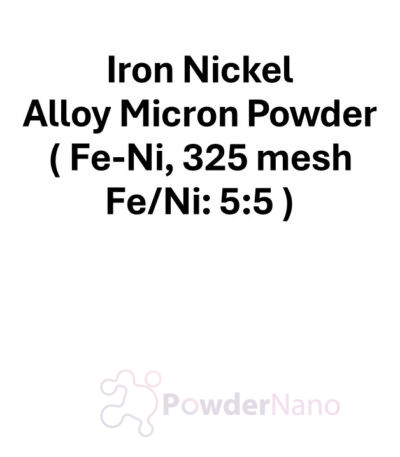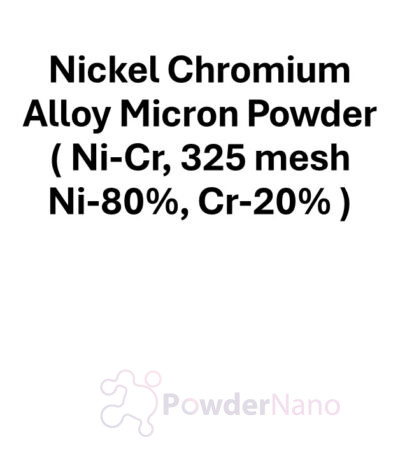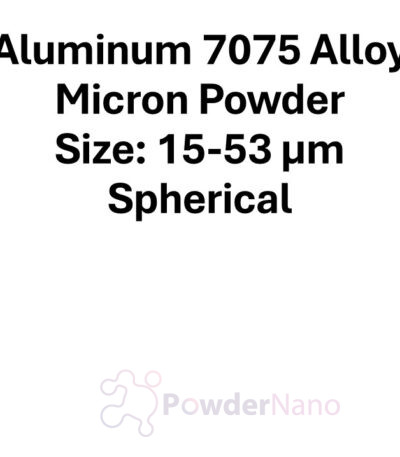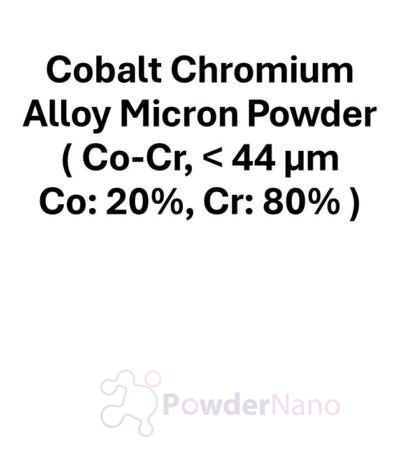Cobalt Chromium Alloy Micron Powder (Co-Cr, < 44 µm, Co: 20%, Cr: 80%)
Technical Specifications:
- Material: Cobalt Chromium Alloy (Co-Cr)
- Purity: 99.9% (high purity)
- Particle Size: <44 µm (microns)
- Shape: Typically spherical or irregular (depending on the manufacturing process)
- Density: Approximately 8.3 g/cm³ (for the alloy)
- Melting Point: 1,300°C – 1,400°C (2,372°F – 2,552°F), depending on the exact composition
- Boiling Point: Both cobalt and chromium have very high boiling points, with cobalt at approximately 2,927°C (5,301°F) and chromium at approximately 2,672°C (4,842°F).
- Chemical Composition (Co: 20%, Cr: 80%):
- Cobalt (Co): 20%
- Chromium (Cr): 80%
Applications:
- Powder Metallurgy:
- Cobalt Chromium (Co-Cr) Alloy Powder is used extensively in powder metallurgy for the manufacture of high-performance, durable components. The alloy is compacted and sintered to create parts such as gears, bearings, pistons, brackets, and electrical connectors that require excellent strength, corrosion resistance, and wear resistance.
- It is particularly useful in producing high-stress, high-temperature components that need outstanding mechanical properties.
- Additive Manufacturing (3D Printing):
- Co-Cr alloy powder is widely used in metal 3D printing processes, including Selective Laser Melting (SLM) and Laser Powder Bed Fusion (LPBF). The <44 µm particle size is optimal for producing complex, customized parts with high precision and durability in industries like aerospace, automotive, medical, and electronics.
- The spherical powder shape aids in efficient powder flow during the printing process, ensuring high-density parts with superior mechanical properties.
- Medical Applications (Orthopedic Implants):
- Cobalt Chromium alloys are extensively used in the medical field, particularly in the production of orthopedic implants and surgical instruments. The alloy’s biocompatibility, strength, and resistance to corrosion make it ideal for hip replacements, knee implants, dental implants, and prosthetics.
- The Co-Cr micron powder is used in additive manufacturing of customized implants that are tailored to individual patient needs, providing high strength and long-term performance.
- Aerospace and Aircraft Components:
- Cobalt Chromium alloys are known for their high strength, corrosion resistance, and ability to withstand high temperatures, making them ideal for aerospace applications. Common uses include engine components, turbine blades, exhaust systems, and structural components in aircraft and spacecraft.
- The powder can be used in 3D printing to create lightweight, high-performance parts that can handle the extreme conditions of aerospace applications.
- Dental Materials:
- Co-Cr alloys are commonly used in dentistry for the manufacture of dental crowns, bridges, partials, and dental implants. The material’s biocompatibility, strength, and resistance to corrosion make it ideal for oral healthcare applications.
- The micron powder is used to 3D print dental implants or orthodontic appliances that are tailored to fit individual patient needs while maintaining durability and resilience in the oral environment.
- Jewelry and Watches:
- Cobalt Chromium alloys are increasingly used in luxury jewelry and watches due to their high hardness, scratch resistance, and aesthetic appeal. Co-Cr alloys are particularly useful in custom jewelry and watch components that require strength and resilience while maintaining a polished appearance.
- Additive manufacturing using Co-Cr alloy powder allows for the creation of detailed, durable, and lightweight jewelry pieces with complex shapes.
- Wear-resistant Coatings:
- Cobalt Chromium is widely used for coating applications in industries requiring parts to endure abrasion, erosion, and extreme temperatures. The Co-Cr powder is used in thermal spray coating techniques to provide high-performance coatings on parts like turbine blades, pumps, gears, and cutting tools.
- These coatings extend the life of components used in high-temperature and high-wear environments, including gas turbines, engines, and industrial machinery.
- Electrical Contacts and Connectors:
- Due to its excellent electrical conductivity and corrosion resistance, Cobalt Chromium alloy is used in the manufacture of electrical contacts, connectors, and switchgear for high-performance electrical systems. The alloy’s resilience to oxidation makes it ideal for long-lasting electrical components used in power systems, switches, and high-voltage applications.
- Power Generation Components:
- Co-Cr alloys are used in power generation components, particularly in gas turbines, boiler parts, turbine blades, and heat exchangers. The alloy’s high-temperature resistance, corrosion resistance, and durability make it an ideal material for components that operate under extreme conditions.
- Co-Cr micron powder is used for coating power generation parts to enhance their resistance to wear and oxidation during prolonged exposure to high heat and stress.
- Marine Applications:
- The corrosion resistance of Cobalt Chromium alloys makes them ideal for marine applications such as subsea equipment, marine hardware, and offshore oil rigs. Components exposed to seawater, such as propellers, shafts, valves, and seawater pumps, benefit from the alloy’s high durability and resistance to marine corrosion.
- Research and Development:
- Co-Cr alloy micron powder is used in research and development to explore new material properties and applications in fields such as biomedical engineering, aerospace engineering, and industrial manufacturing.
- Researchers use the powder for additive manufacturing, material testing, and application-specific innovations to develop new technologies and optimize high-performance applications.
Cobalt Chromium Alloy Micron Powder (Co-Cr, < 44 µm, Co: 20%, Cr: 80%) is a high-performance material widely used across industries that require strength, corrosion resistance, wear resistance, and thermal stability. This powder is essential for additive manufacturing, powder metallurgy, and coating processes in sectors like aerospace, medical, automotive, marine, electronics, and industrial applications. Its versatility ensures that it is suitable for manufacturing precision components, custom implants, coated parts, and wear-resistant components that perform in extreme environments.
